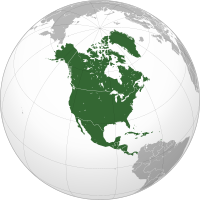
Photo from wikipedia
By 1946, Cuban–US relations had become strained over radio. Broadcasting from each nation repeatedly crossed borders and interfered with radio reception in the other country. The 1946 North American Regional… Click to show full abstract
By 1946, Cuban–US relations had become strained over radio. Broadcasting from each nation repeatedly crossed borders and interfered with radio reception in the other country. The 1946 North American Regional Broadcasting Agreement (NARBA) attempted to remedy that problem. This account of the impassioned reactions and heated rhetoric surrounding the 1946 NARBA underscores the enduring strength of national and regional identities in a globalizing world. Encounters with US radio programming in Cuba inspired Cubans to fight for distinctly Cuban radio interests. The resulting 1946 NARBA, which imposed new restrictions on US broadcasting to benefit Cuba, provoked farmers from California and Arizona, who – as those who believed they were the most affected by the new restraints imposed on US radio – railed against their government’s acquiescence. Their reactions, in fact, were deeply entangled with the complex history of US identity formation, which had from the nation’s earliest years privileged specific regional loyalties that coexisted alongside both local and national ones. It is, in sum, a story that shows how in certain contexts audiences can and will resist globalizing influences by leaning on their existing national, regional, and local identities that provide meaning in their world.
Journal Title: Journal of Contemporary History
Year Published: 2017
Link to full text (if available)
Share on Social Media: Sign Up to like & get
recommendations!